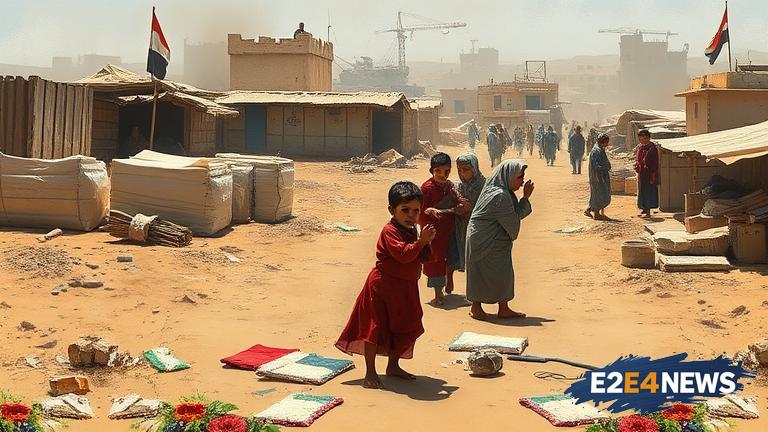The Gaza Strip, a Palestinian territory, has been under a blockade by Israel and Egypt since 2007, severely limiting the flow of goods, including food and medicine. The situation has been exacerbated by the COVID-19 pandemic, which has further restricted movement and access to essential supplies. As a result, the humanitarian crisis in Gaza has reached catastrophic levels, with 100,000 children facing imminent death by starvation. The United Nations has warned that the situation is dire, with many families unable to access basic necessities like food, water, and healthcare. The blockade has also had a devastating impact on the economy, with high levels of unemployment and poverty. The Gaza Strip is one of the most densely populated places on earth, with over 2 million people living in a area of just 360 square kilometers. The territory has been the site of numerous conflicts between Israel and Palestinian militant groups, resulting in significant damage to infrastructure and a lack of access to basic services. The humanitarian crisis in Gaza has been ongoing for many years, but the situation has deteriorated significantly in recent months. The international community has been criticized for its response to the crisis, with many arguing that more needs to be done to address the root causes of the problem. The Israeli government has maintained that the blockade is necessary for security reasons, but human rights groups have argued that it is a form of collective punishment. The situation in Gaza has been described as a ‘ticking time bomb’ by the UN, with the potential for further conflict and instability. The international community has a responsibility to act to prevent a humanitarian disaster, and to work towards a lasting resolution to the conflict. The US, EU, and other major powers have a critical role to play in addressing the crisis, and in supporting efforts to promote peace and stability in the region. The situation in Gaza is a complex and deeply entrenched problem, and will require a sustained and coordinated effort to resolve. The humanitarian crisis in Gaza is a stark reminder of the need for a comprehensive and lasting peace agreement between Israel and the Palestinians, and for the international community to take a more active role in promoting peace and stability in the region. The Gaza Strip is a small but significant part of the broader Middle East peace process, and a resolution to the crisis will be critical to achieving a lasting and comprehensive peace in the region.
